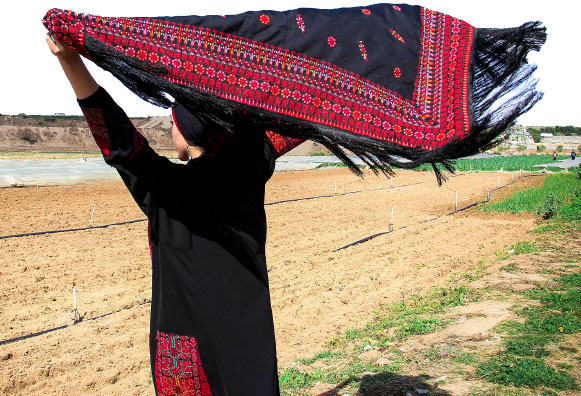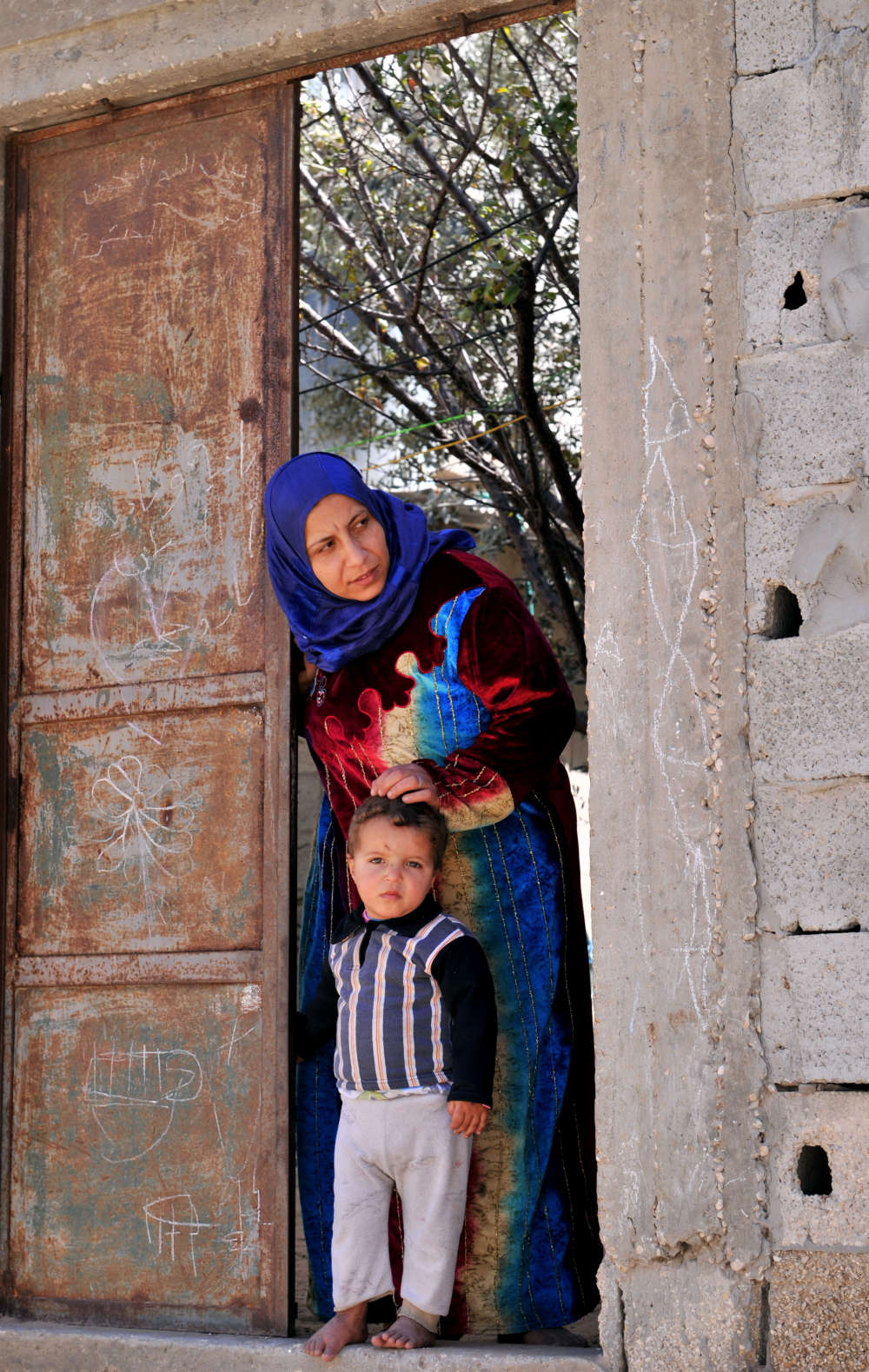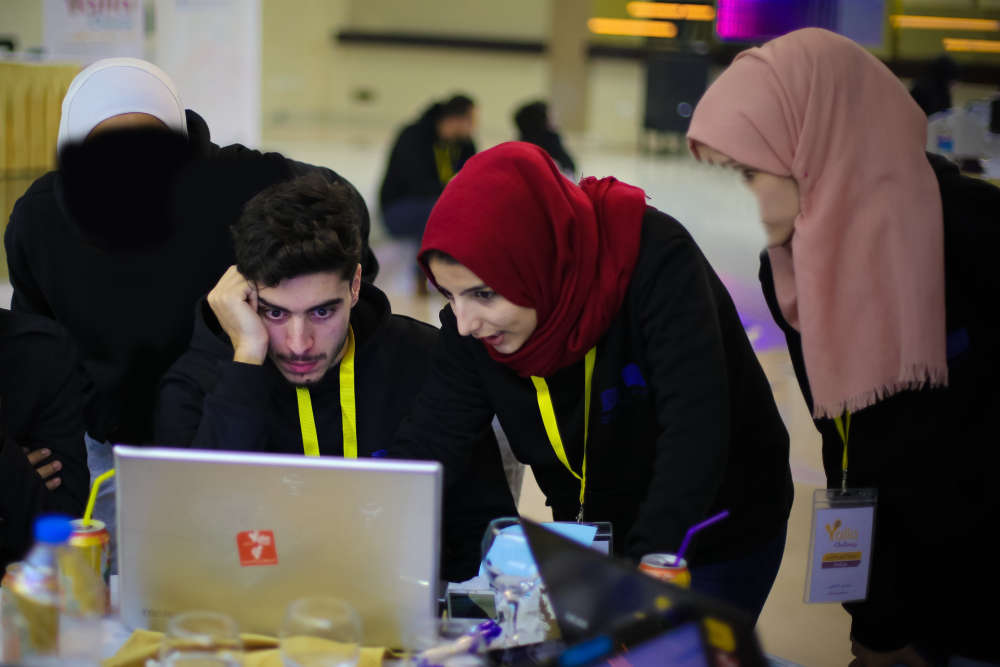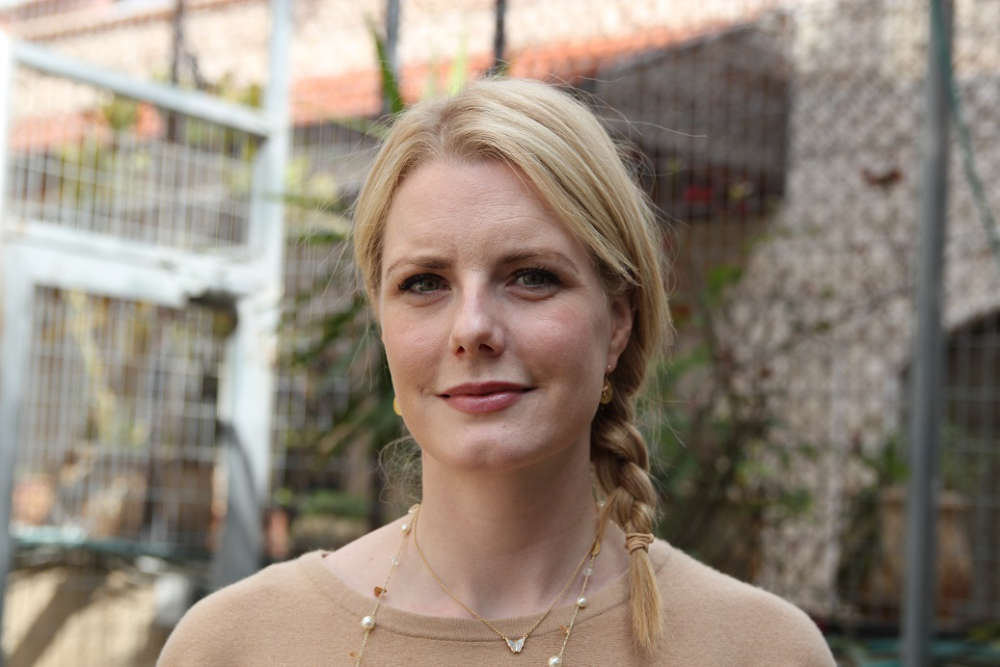Throughout my work for gender equality and women’s rights in the United Nations and civil society, I have seen first-hand how women’s empowerment and peace and development are interlinked. This has led me to the conclusion that we need to refrain from referring to the violence and discrimination that women face as women’s issues, and must start seeing it for what it really is, our issues – issues that negatively affect all of humanity and stand in our way of achieving peace and sustainable development. Women and girls are an untapped resource globally, and the State of Palestine is no exception. Ensuring women’s equal and meaningful participation in state building and in the peace and reconciliation process, and making solid investments in women and girls’ health and education are likely to yield positive results for all Palestinians.
While women’s equal rights and opportunities are an objective in itself, it is time that we recognize that the same violent masculinities who cause the violation of women’s human rights also cause conflict, fragility, and a lack of human development. It is important to note that the women’s movement that in 1979 successfully advocated for the adoption of the Convention on the Elimination of all Forms of Discrimination Against Women (CEDAW) and in 2000 brought about UN Security Council Resolution 1325 on Women, Peace, and Security, not only pursued equal rights for men and women. It envisioned a new world order – a paradigm shift towards a holistic and people-centered approach to peace and development.

At the end of the Cold War a new security model emerged, known as human security. It reinforced what the women’s movement had been asserting for decades, namely that peace and security need to be inclusive. Efforts and implementation must focus on the needs of people and move beyond traditional security models. This was articulated by former UN Secretary General Kofi Annan in 2001, when he stated, “Today, we know that ‘security’ means far more than the absence of conflict… We know that lasting peace requires a broader vision, encompassing areas such as education and health, democracy and human rights, [and] protection against environmental degradation and the proliferation of deadly weapons. We know that we cannot be secure amidst starvation, that we cannot build peace without alleviating poverty, and that we cannot build freedom on foundations of injustice. These pillars of what we now understand as the people-centered concept of ‘human security’ are interrelated and mutually reinforcing.”i
Despite the concept of human security, and even though evidence suggests that gender equality is a better indicator of the peacefulness and stability of a state than other parameters such as democracy and gross domestic product (GDP), the linkages between women’s empowerment and peace and sustainable development have largely been ignored.ii Failing to recognize violence against women as an early warning indicator of conflict and fragility, when evidence shows that there is a correlation between violence against women and conflict, and one in three women have experienced physical or sexual violence worldwide, is negligent.iii
In the Palestinian context, where 29.9 percent of ever-married women in the West Bank and 51 percent in the Gaza Strip have experienced some form of violence at home, addressing gender-based violence must be a cornerstone in building a viable state.iv

While most policymakers recognize that the security and development of a state have an impact on women’s lives, there is still some way to go until it is fully recognized that inversely, the security and rights of women have an impact on the security and development of the state. A step in the right direction was the adoption of the Sustainable Development Goals 2030 (SDGs) by world leaders in 2015, as Goal 5 specifically focuses on gender equality and the empowerment of women and girls, and gender equality commitments are integrated throughout the other 15 goals. Whereas this is an important recognition of how gender equality and women’s empowerment are linked with sustainable development, efforts are needed to sustain the momentum and ensure that women and girls are not left behind, as happened so many times in the past. Successful realization of the SDGs in the State of Palestine requires that all stakeholders acknowledge the transformational nature of women’s empowerment and gender equality, and safeguard that it is an integral part of all implementation efforts.
Nowhere is the lack of an inclusive and people-centered approach more apparent than at the peace negotiating table. According to UN Women’s 2015 Global Study on the implementation of Security Council Resolution 1325, an analysis of peace processes between 1992 and 2011 revealed that only 2 percent of chief mediators, 4 percent of witnesses and signatories, and 9 percent of negotiators were women. Considering the bleak track record for peacemaking, as more than half of the peace processes that lead to an agreement slip back into conflict within five years, and with research showing that women’s participation in a peace process leads to a significant increase in the likelihood that an agreement will be reached and implemented, there is no justification for the utilization of traditional approaches that exclude women. This was best summarized by a woman peace activist who explained that “few patients would choose a heart surgeon with only a 50 percent chance of success, and yet the international community continues to choose operating models with a low effectiveness rate, even when presented with evidence of better options.”v Learning from over 70 years of failed peacemaking processes, the State of Palestine has the opportunity to amend its approach that thus far has excluded women – making it more inclusive, and guaranteeing women’s equal and meaningful participation in all peace and reconciliation efforts.
In addition to peace, gender equality is closely linked to a wide variety of issues such as economic growth, governance, health, and education. Research shows that the larger the gender gap, the lower the GDP per capita of a state, and the lower the rate of national economic growth. This suggests that women’s economic empowerment, utilizing the capabilities of the entire population, is a prerequisite for economic stability and growth. Acknowledging this, and considering the 19 percent labor force participation rate for Palestinian women, there is a need for significant interventions to advance women’s economic empowerment and contribution to the economy.vi Inequality between the sexes also has an impact on the health of communities, and the larger the gender gap, the lower the life expectancy is for both men and women. Similarly, the more gender inequality there is in a state, the higher the level of government corruption. When men and women have equal rights and opportunities, there is an increase in transparency and trust in government institutions, which suggests that gender equality is key to fighting corruption.vii
With the overwhelming evidence that gender equality and women’s empowerment are preconditions for peace and development, why is progress so slow? Although both men and women, as well as societies at large, stand to gain from women’s empowerment and a more inclusive and people-centered approach to peace and development, its adoption requires us to challenge the current world order and the status quo. If we are brave enough to do this, our societies are likely to become more peaceful and prosperous – the alternative is that we continue to do the same thing over and over again, expecting a different result.

Similar to other countries that are plagued by conflict yet try to safeguard human rights and build democratic institutions, the State of Palestine is at a crossroads. Choosing the road less travelled to reach peace and development, making gender equality an integral part of its modus operandi, the State of Palestine will not only become a role model in the region, but will also safeguard a brighter future for all Palestinians.
Emmicki Roos is a gender expert who has spent the last ten years working on gender mainstreaming and the Women, Peace and Security Agenda in civil society and the United Nations. Ms. Roos is a co-founder and executive director (at this time on leave) of 1325 Policy Group, a Swedish non-governmental organization. She currently serves at UNDP as a seconded gender advisor from the Swedish Civil Contingencies Agency (MSB).
i Kofi A. Annan”Foreword,” in Human Security and the New Diplomacy: Protecting People, Promoting Peace, edited by Mcrae Rob and Hubert Don, Xix-Xx, McGill-Queen’s University Press, 2001, available at http://www.jstor.org/stable/j.ctt13x0nsn.5.
ii Marie O’Reilly, “Why Women? Inclusive Security and Peaceful Societies,” Inclusive Security, 2015, available at https://www.inclusivesecurity.org/publication/why-women-inclusive-security-and-peaceful-societies/.
iii Facts and Figures: Ending Violence Against Women, UN Women, 2017, available at http://www.unwomen.org/en/what-we-do/ending-violence-against-women/facts-and-figures.
iv Ibid.
v Radhika Coomaraswamy, Preventing Conflict, Transforming Justice, Securing the Peace: A Global Study on the Implementation of Security Council Resolution 1325, UN Women, 2015, pp. 40-42, available at http://www.peacewomen.org/sites/default/files/UNW-GLOBAL-STUDY-1325-2015%20(1).pdf.
vi Press Release: On the Occasion of 01 May International Workers Day, Palestinian Central Bureau of Statistics (PCBS), 2015, available at http://www.pcbs.gov.ps/portals/_pcbs/PressRelease/Press_En_IntWokDy2016E.pdf.
vii Valerie M. Hudson and Chad Emmett, Sex and World Peace, Woodrow Wilson Center, 2012, available at https://www.wilsoncenter.org/sites/default/files/Hudson%20Presentation.pdf.



